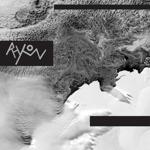
Rhyton Rhyton
(Thrill Jockey)
Rhyton derive their name from an ancient drinking vessel, usually in the shape of a horn, which originated in Persia and was appropriated by the Greeks. It is usually associated with some sort of ceremony such as a libation, in which liquid is poured onto the ground or altar as an offering to the gods. Thrill Jockey Records announce the release of Rhyton, the band’s, debut album thus: “Rhyton pours out a sonic libation unto the liberated world”.
The band is a three-piece conforming to the rock trio format of guitar, bass and drums. There are no vocals. Essentially the brain-child of Dave Shuford, previously with D. Charles Speer and most intriguingly the No-Neck Blues Band, whose 2001 album Sticks and Stones May Break My Bones but Names Will Never Hurt Me was one of the finest examples of the new weird Americana of the early 21st Century. That album had a rawness and innocence that went hand in hand with its primitivism. It was as if the music was being uncovered by a team of sonic archaeologists, bits were broken and rough-edged, but the form was still discernable, a message from a distant past we have all but forgotten.
Rhyton takes that sense of (re)discovery and applies it to a more rockist approach musically. With more than a nod to 60s and 70s psych-rock pioneers such as The Grateful Dead , early Pink Floyd, or Hawkwind, Rhyton takes the electric blues and essentially wrings the living daylights out of it, leaving just a shell. Favouring lengthy improvisational jams over traditional songs structures, the five tracks here all explore the relationship between repetition and improvisation. The bass forms the bedrock of the tracks, over which guitar, as well as ethnic stringed instruments, tape-loops and effects serve to create drones and atmospheres. Closing track Shank Raids boasts the most traditional structure, opening with a riff and groove that come almost as a relief after the preceding half-hour of formlessness. The track has a North African flavour, but marries this Occidentalism to a Western rock form. This has been done before of course, but this is a fine example of such a fusion.
As with NNCK there is the sense that an artefact from the past has been unearthed and is seeing the light of day for the first time in centuries. The music here is primal, like the raw unadorned blues of Charley Patton or Robert Johnson. It’s like something from another age, alien and yet familiar to us. Rhyton simply play their music, unfettered by the constraints of tradition, structure or expectation, and it’s that quality that makes their album such a thrilling experience. It won’t sell in great quantities, but that’s not the point. The music is made because it had to be made.
10 February, 2012 - 08:53 — David John Wood